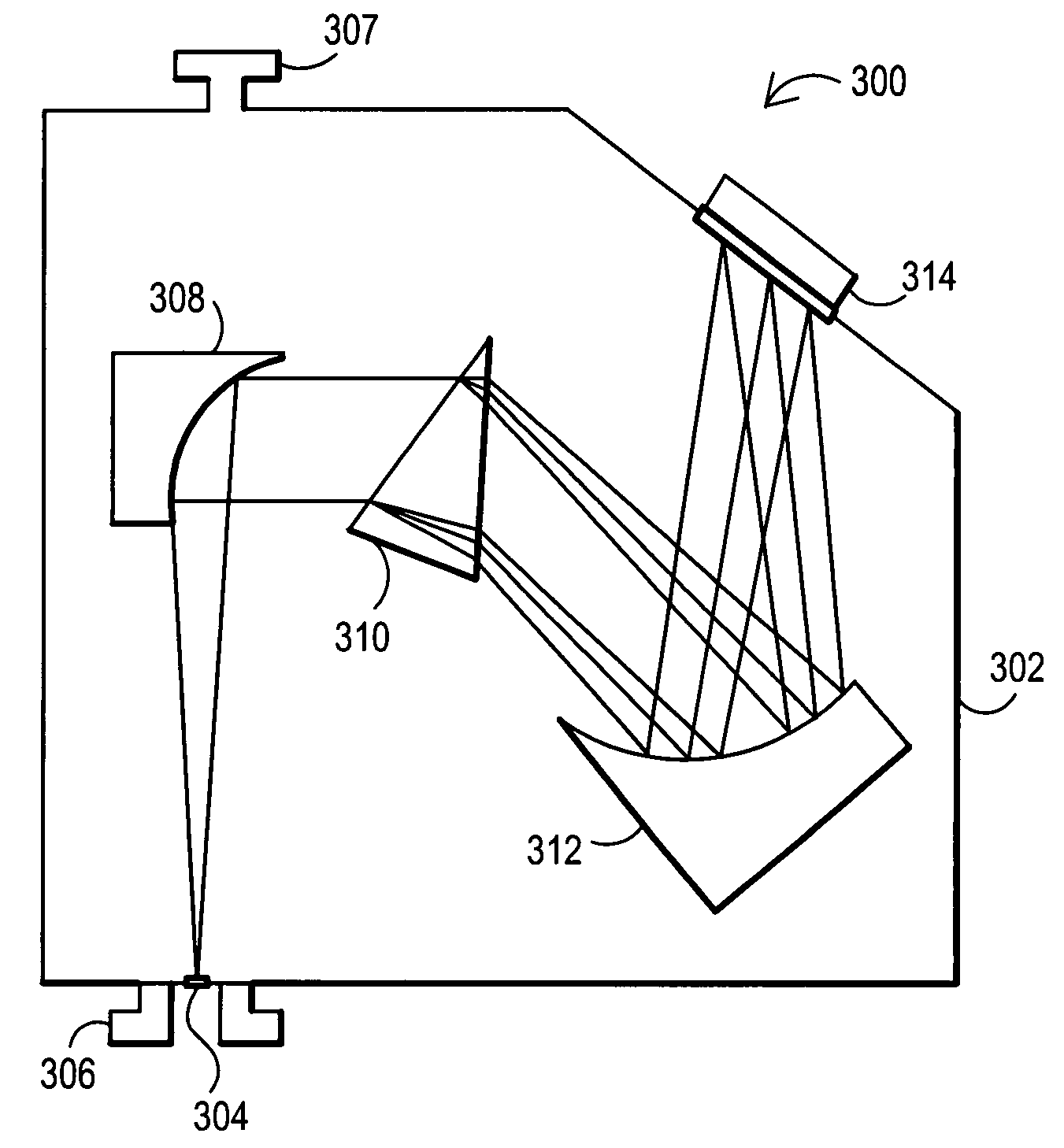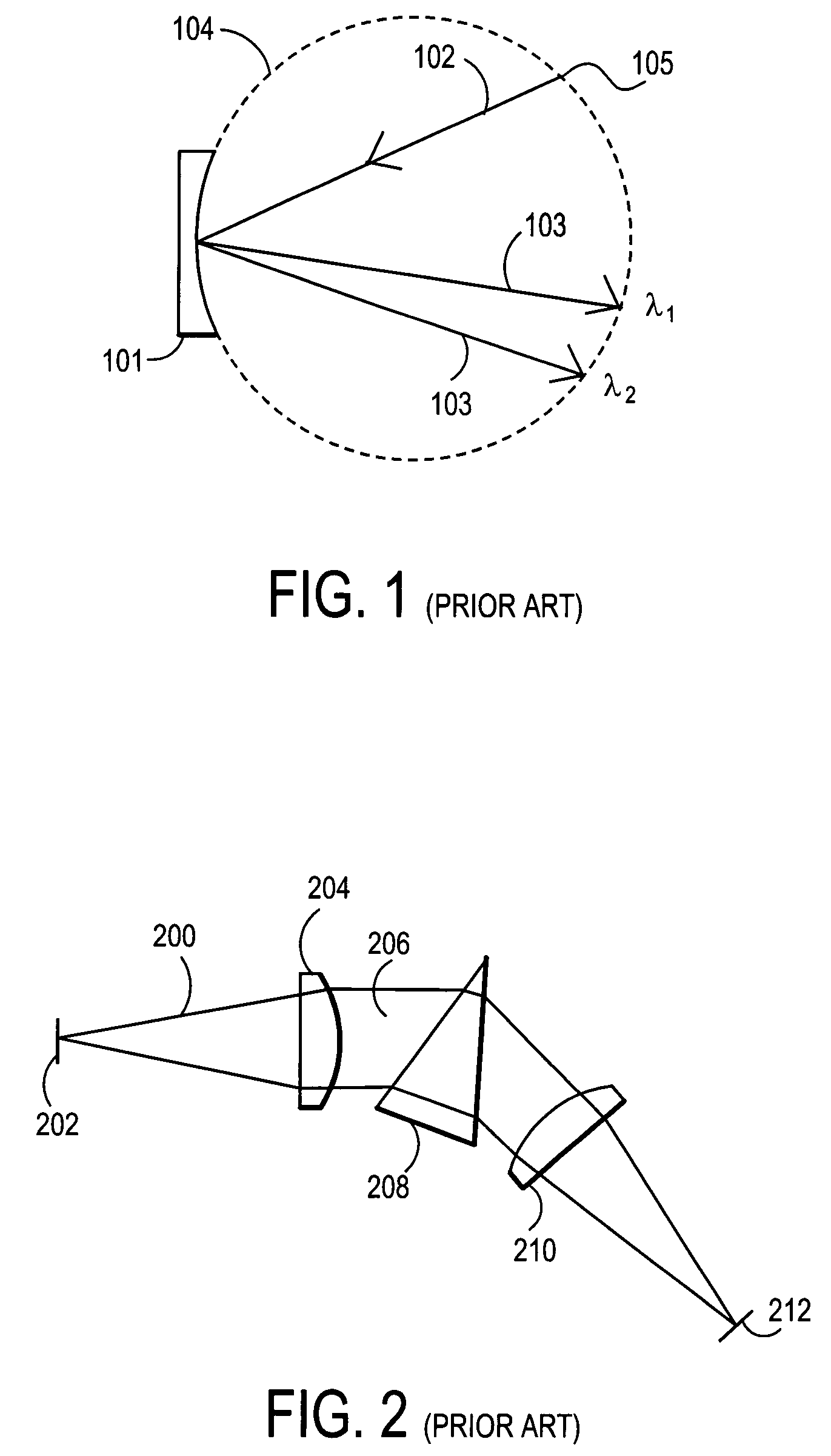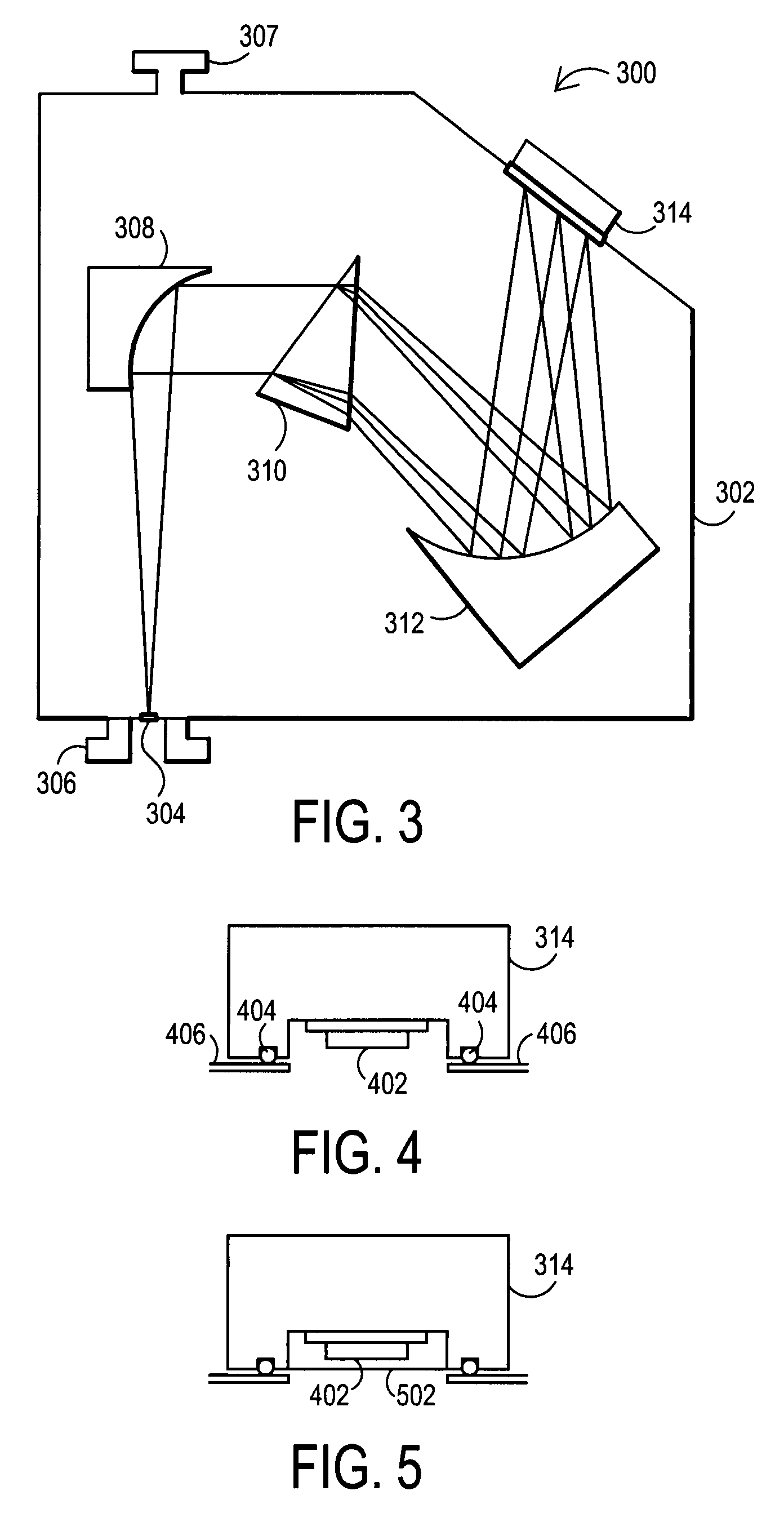Prism spectrometer
a spectrometer and prism technology, applied in the field of optical spectroscopy, can solve the problems of low vuv efficiency profile, loss of intensity and spatial resolution in the direction, and inability to achieve high-efficiency spectroscopic instruments for operation in the vuv, so as to facilitate the alignment of array detectors, improve alignment tolerance, and improve the effect of alignment toleran
- Summary
- Abstract
- Description
- Claims
- Application Information
AI Technical Summary
Benefits of technology
Problems solved by technology
Method used
Image
Examples
Embodiment Construction
[0038]To enhance the sensitivity of optical metrology equipment for challenging applications it is desirable to extend the range of wavelengths over which such measurements are performed. Specifically, it is advantageous to utilize shorter wavelength (higher energy) photons extending into, and beyond, the region of the electromagnetic spectrum referred to as the vacuum ultra-violet (VUV). Vacuum ultra-violet (VUV) wavelengths are generally considered to be wavelengths less than deep ultra-violet (DUV) wavelengths, i.e. less than about 190 nm. While there is no universal cutoff for the bottom end of the VUV range, some in the field may consider VUV to terminate and an extreme ultra-violet (EUV) range to begin (for example some may define wavelengths less than 100 nm as EUV). Though the principles described herein may be applicable to wavelengths above 100 nm, such principles are generally also applicable to wavelengths below 100 nm. Thus, as used herein it will be recognized that the...
PUM
| Property | Measurement | Unit |
|---|---|---|
| focal lengths | aaaaa | aaaaa |
| wavelengths | aaaaa | aaaaa |
| wavelengths | aaaaa | aaaaa |
Abstract
Description
Claims
Application Information
 Login to View More
Login to View More - R&D
- Intellectual Property
- Life Sciences
- Materials
- Tech Scout
- Unparalleled Data Quality
- Higher Quality Content
- 60% Fewer Hallucinations
Browse by: Latest US Patents, China's latest patents, Technical Efficacy Thesaurus, Application Domain, Technology Topic, Popular Technical Reports.
© 2025 PatSnap. All rights reserved.Legal|Privacy policy|Modern Slavery Act Transparency Statement|Sitemap|About US| Contact US: help@patsnap.com



